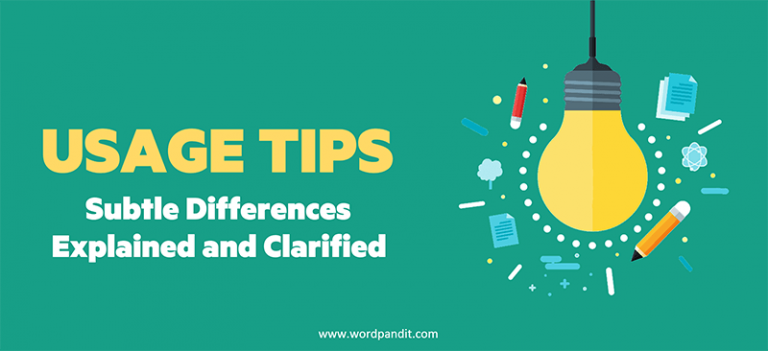Clarifying Confusing Word Pairs: Discomfit, Discomfort, & Disconcert
Have you ever found yourself tangled up in the words discomfit, discomfort, and disconcert? 🤔 You’re not alone. These three words not only look similar, but their meanings overlap in ways that can easily trip up even the most seasoned wordsmiths. Understanding their nuances can help you use them confidently and accurately—whether you’re crafting a compelling argument or just trying to describe that awkward moment in a meeting. 😅 Getting these words right can not only make your writing more precise but also help you express those subtle differences in feelings and situations that make language so rich and engaging. 📖
The Trio Explained
Discomfit
- Definition: To make someone feel uneasy or embarrassed, often to the point of confusion or defeat. It can leave someone feeling flustered, awkward, or even defeated in a way that goes beyond simple discomfort.
- Pronunciation: diss-KUHM-fit 🌱
- Etymology: From Middle English, derived from Old French desconfire, meaning “to defeat utterly.” It often carries a slightly more intense connotation compared to its counterparts, suggesting an element of frustration or foiled plans.
- Usage Example: “The challenging question from the audience discomfited the speaker, making him stumble over his response.”
- Synonyms: Confound, frustrate, unsettle, fluster, embarrass.
- Antonyms: Comfort, reassure, console, soothe.
Discomfort
- Definition: A mild physical or emotional unease. It’s less intense than discomfit and refers more to unpleasant feelings than outright defeat. It could be something as simple as feeling a bit out of place, or a physical sensation that’s bothersome without being overwhelming.
- Pronunciation: diss-KUHM-furt 🤦
- Etymology: Originates from the Latin discomfitare, with roots that connect to the idea of removing comfort or convenience. This word is all about the absence of ease or comfort—something that’s irritating, but not necessarily defeating.
- Usage Example: “The stiff chair caused great discomfort during the long meeting.”
- Synonyms: Unease, pain, irritation, inconvenience, bother.
- Antonyms: Comfort, ease, relief, pleasure.
Disconcert
- Definition: To unsettle or throw someone off balance mentally. Unlike discomfit, which leans into embarrassment, disconcert can simply mean disrupting one’s composure. It doesn’t necessarily imply a complete defeat, but rather a disruption that throws someone off their usual steadiness.
- Pronunciation: diss-kon-SERT 🎶
- Etymology: From the French déconcerter, meaning to throw into disorder. It’s like a mental or emotional curveball. 🎢 This word is perfect for those moments when something unexpected happens, and it leaves you momentarily off-kilter.
- Usage Example: “The sudden change of plans disconcerted everyone at the meeting.”
- Synonyms: Bewilder, unsettle, disturb, confuse, fluster.
- Antonyms: Calm, reassure, soothe, stabilize.
Comparison and Contrast
So how do we tell these three apart without a disconcerting moment of discomfort? 😉 Let’s break it down:
- Discomfit usually means to embarrass or confuse someone to the point of frustration or feeling defeated. It’s about feeling thwarted or losing one’s footing in a situation that might have been a challenge.
- Discomfort is more physical or emotional unease—think of the feeling you get when your back hurts, or someone makes a mildly awkward comment. 💺 It’s that sense of lacking comfort, and while it’s unpleasant, it’s not overwhelming.
- Disconcert implies a mental or emotional disturbance, like when an unexpected surprise throws you off balance. 😵 It’s when your plans go sideways, and you’re left trying to regain your composure.
These words all deal with a kind of unease, but the type and intensity of that unease vary. Discomfit is the most intense, often involving a sense of defeat. Discomfort is the mildest, often a simple lack of comfort. Disconcert lies somewhere in between, involving a mental or emotional disruption.
Contextual Usage
To make things even clearer, let’s put them all in the same setting:
During the presentation, the critical questions from the audience discomfited the speaker, causing discomfort as he shifted nervously. The sudden technical glitch only served to disconcert the team further. 💻
In this context, the speaker feels discomfited by the tough questions—he’s embarrassed and thrown off his game. He also feels physical discomfort as he fidgets nervously. The technical glitch disconcerts the entire team, unsettling them and throwing them off balance.
Mnemonic Device
Here’s a handy way to remember these words:
- Discomfit = “Defeat the Fit”—make someone feel like they’re not up to the task, hence defeated. 🤯 Think of it as getting defeated in a mental or social context, where you’re left feeling awkward or out of place.
- Discomfort = “Uncomfortable Fort”—think of sitting in a badly made pillow fort, feeling uneasy. 🏕️ It’s about lacking comfort, like a physical or emotional itch you just can’t quite scratch.
- Disconcert = “Disconnect Concert”—like when the band suddenly stops playing, throwing off everyone’s mood. 🎸 Imagine the flow being disrupted and everyone looking around in confusion.
Related Word Pairs
If you found this helpful, you might also want to explore other confusing pairs like abjure vs. adjure, affect vs. effect, or elicit vs. illicit. 📚 These are just as tricky, but understanding them will make your vocabulary even more precise and expressive.
Test Your Knowledge: Discomfit, Discomfort & Disconcert
1. The sudden question from the audience seemed to ___ the presenter, leaving him visibly rattled. 🤔
2. The unfamiliar food caused ___ for most diners. 🤢 This refers to a mild unease, something that made the experience less than pleasant.
3. Discomfort refers to feeling embarrassed and defeated. ❌
4. Which of the following is a synonym for “Discomfit”? 🤯
5. The surprise announcement was intended to ___ the audience, leaving them puzzled. 🤷
6. The speaker was ___ by the questions, while the technical difficulties only served to further ___ the entire panel. 🎤💻
7. Which word originates from a term meaning to remove comfort? 📜
8. The word ‘discomfit’ can be used to describe physical pain. 💭
9. The audience’s reactions were meant to ___ the speaker, yet they ultimately led to only mild ___ among the listeners. 🎭













